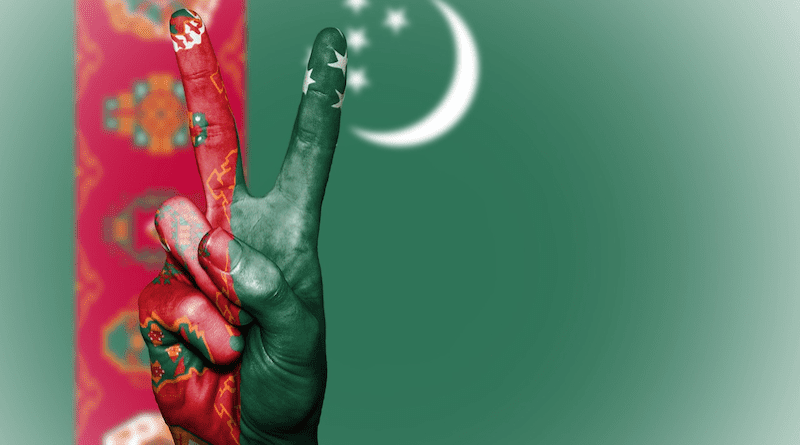Turkmenistan: NGOs Submit Joint Report For Women’s Rights Review – OpEd
By IPHR
Turkmen Initiative for Human Rights (TIHR) and International Partnership for Human Rights (IPHR) have submitted a joint report to the UN Committee on the Elimination of All Forms of Discrimination against Women (CEDAW). The joint NGO report provides input for the CEDAW’s upcoming review of Turkmenistan’s implementation of the corresponding convention, which will begin with the adoption of a list of issues to Turkmenistan’s government at a CEDAW meeting in Geneva at the end of May-beginning of June 2023.
At a time when the human rights situation in Turkmenistan remains highly repressive and a protracted economic crisis has resulted in increasing poverty, unemployment, and lack of access to affordable food staples, women remain a highly vulnerable group of the population. Despite officially proclaimed commitments to gender equality, state policies de-facto contribute to upholding negative and discriminatory attitudes towards women and their supposed “traditional” role in society. Hopes for improvements following the transfer of presidential powers to from father (Gurbanguly) to son (Serdar) Berdymukhamedov in March 2022 were quickly dashed by the launch of a new, reinforced campaign to promote so-called ‘’traditional’’ values and standards for women, which resulted in new arbitrary restrictions on women’s rights and further strengthened negative gender stereotypes.
The joint TIHR-IPHR report covers the following key issues:
- The share of women in decision-making and executive bodies remains comparatively low in Turkmenistan, and women often hold certain types of leadership positions such as those related to social issues. Given the highly authoritarian government system in place in the country, with powers being concentrated at the top, and the lack of any real division of powers, women who are represented in decision-making and executive state bodies typically have little real influence.
- While it is welcome that an Ombudsperson’s office was created, and a woman (Yazdursun Gurbannazarova) was appointed as the first mandate holder in 2017 and re-elected in 2022, there are serious ongoing concerns about the lack of independence of the Ombudsperson’s office, its limited authority and the lack of effective action taken by the office to address human rights issues, including in cases involving women.
- The authorities have not only failed to effectively counteract discriminatory gender stereotypes and negative practices but have also contributed to further strengthening such attitudes and practices, in particular by enforcing unofficial restrictions on women’s rights in the name of safeguarding national traditions and values. After President Serdar Berdymukhamedov took office in March 2022, a series of new measures were implemented aimed at restricting, controlling and policing women’s appearance and conduct, such as with respect to their clothing, use of beauty services and products, and their travel.
- It is encouraging that the government carried out a first-ever survey on domestic violence against women, with support from the United Nations Population Fund in 2020, which provided important insights into problems in this area. However, it also imperative that the government takes effective measures to develop and implement a comprehensive strategy for countering domestic violence against women in follow-up to the survey results, as previously recommended by the CEDAW. That should, as a matter of priority, include the adoption of a separate legislation criminalising domestic violence; systematic efforts to investigate and prosecute reported cases of domestic violence; and improvements in support services for victims.
- The freedoms of expression, association and assembly continue to be seriously restricted in Turkmenistan, which undermine the opportunities of women to obtain and exchange information, to engage with others and to speak out on issues relating to their rights. The authorities continue to intimidate and harass women who dare to criticise government policies, stand up for their rights or be in contact with exile-based groups or activists; suppress rare spontaneous protests held by women to express discontent about issues of concern to them; and upholds a repressive climate in which independent women’s rights NGOs are not able to operate.
- With women constituting a majority of those working in the public sector, they are especially affected by a number of problematic practices enforced in relation to employees in this sector. In particular, public-sector employees are forced to pick cotton during the annual cotton harvest, to take part in state-organised celebrations and events, as well as time-consuming rehearsals for them, and to pay supposedly voluntary, sizeable contributions from their salaries to cover various costs related to the cotton harvest, the organisation of mass events or other state initiatives.

